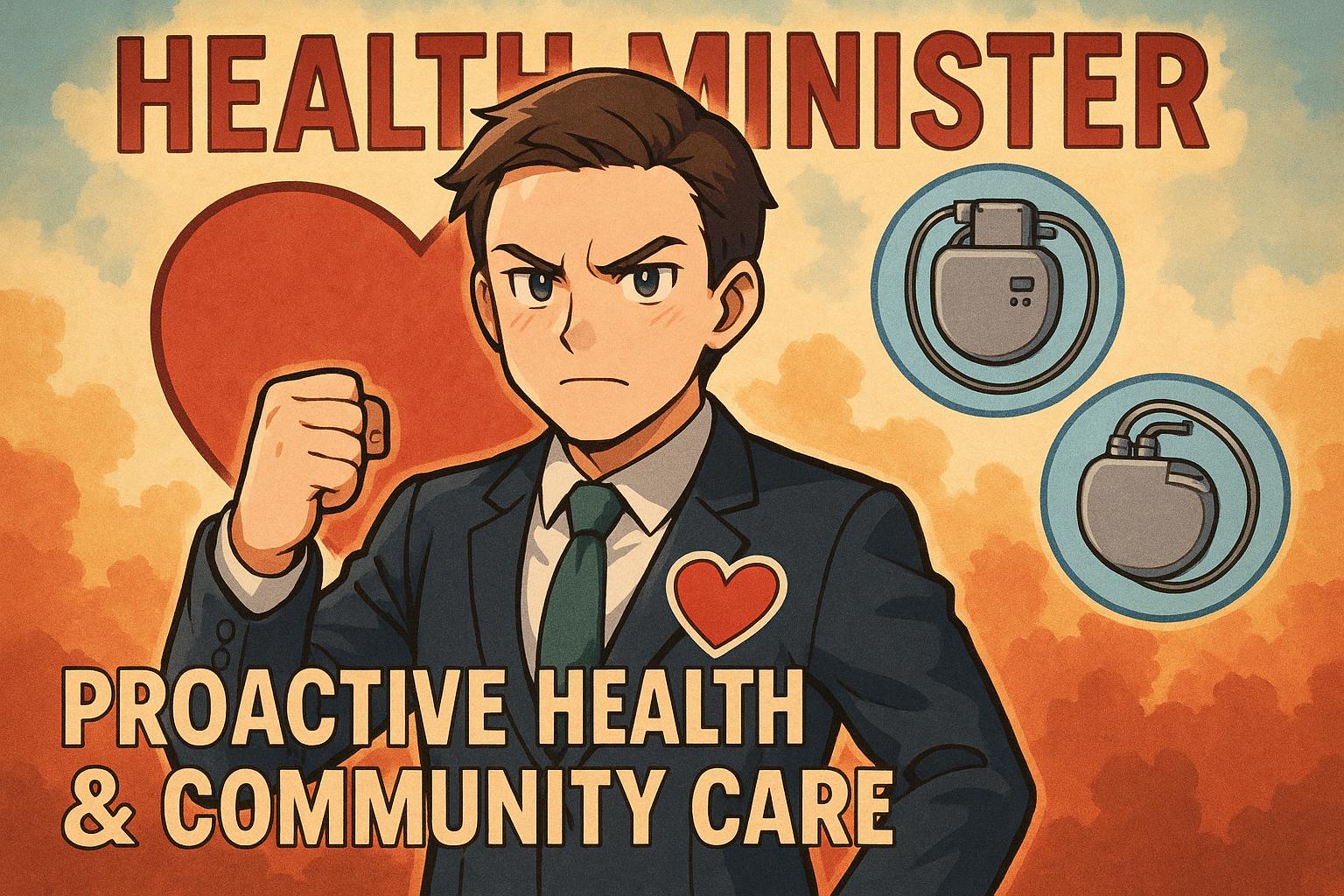Health Minister Mike Nesbitt recently shared a deeply personal account that underscores the critical intersection of individual health management and the broader challenges facing Northern Ireland's healthcare system. Speaking at a walking football charity event in Lisburn, he credited the “professional curiosity” of a general practitioner for identifying a serious heart condition that could have otherwise gone unnoticed. This timely intervention resulted in the minister requiring the implantation of two stents, a pacemaker, and a defibrillator, serving as a stark reminder of the importance of proactive healthcare.
Mr. Nesbitt’s comments are particularly salient given the mounting pressure on health services in Northern Ireland. According to him, the system will struggle to cope with escalating demand unless individuals take charge of their own health. This sentiment echoes broader calls for personal responsibility in health management, as he urged citizens to adopt more active lifestyles to alleviate the strain on the healthcare infrastructure. “My ambition as Health Minister includes moving focus from treating the sick to helping to keep healthy people healthy,” he stated, illustrating his commitment to preventative care.
The minister's health journey, beginning with a diagnosis of heart issues in 2016, exemplifies the potential consequences of neglecting health until it becomes critical. He admitted to not meeting ideal health standards himself, citing a need for improved exercise and diet. This candid admission served as an additional call to action for the public to adopt healthier habits. “I have got what is so charmingly referred to as heart failure,” he said, reflecting the burden that chronic conditions place on the health service. His case also highlights the critical role healthcare professionals play in monitoring and managing health, especially in cases where individuals might mistakenly believe they are well.
In a related context, Northern Ireland faces significant health disparities, with recent assessments revealing a concerning gap in health outcomes across socioeconomic lines. Women residing in the most deprived areas can expect to live 14 years fewer in good health compared to those in more affluent neighbourhoods. To address this, Mr. Nesbitt has announced a 'Live Better' initiative that aims to provide community-based services, such as screenings and mental health support, specifically targeted at the most vulnerable populations. This initiative reflects a growing recognition that systemic issues, including social and economic factors, play a crucial part in health outcomes.
Moreover, Mr. Nesbitt has called for a "reality check" regarding the funding of healthcare services, anticipating a potential £400 million shortfall for the upcoming financial year due to inflation and increased demand. His warnings emphasise the urgent need for reform and investment in health services to prevent a further deterioration of care quality. By advocating for improved targeting of resources in deprived communities, he aims not only to bridge health inequalities but also to foster a healthier population overall.
The Health Minister’s proactive stance is coupled with a broader call for collective effort. He stressed that not only must government agencies work towards creating environments conducive to health, but individuals must also commit to making healthier choices. “There’s therefore an onus on each of us to look after our health and well-being as much as possible,” he noted. This call to action is pivotal as Northern Ireland grapples with the challenges posed by an aging population and rising health service demands.
In conclusion, Mike Nesbitt’s experiences and his advocacy for healthier lifestyles serve as vital components of Northern Ireland's healthcare dialogue. His personal narrative not only highlights the need for individual responsibility in health management but also reinforces the call for systemic change within the healthcare framework. By fostering a culture of prevention and encouraging active participation in health, Mr. Nesbitt aims to mitigate the pressures on the health service, striving to create a healthier society for all.
Reference Map
- Paragraph 1: [1], [2]
- Paragraph 2: [2]
- Paragraph 3: [1], [2], [3]
- Paragraph 4: [4], [6]
- Paragraph 5: [5], [6]
- Paragraph 6: [1], [2], [4]
- Paragraph 7: [3], [4]
Source: Noah Wire Services
